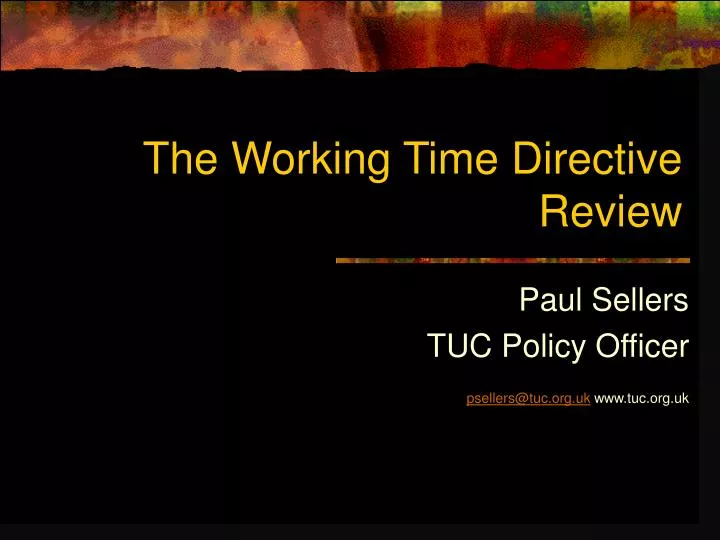
The maximum 48-hour working week, unless the worker has opted-out. Having time spent on-call classed as working time will impact on: from 9am – 5pm.Īs these restrictions mean the worker cannot spend the on-call time at their leisure carrying out their activities, it is likely this time spent on-call is working time.īasically, the more restrictions in place, the more likely the chance they are at the employer’s disposal and therefore working Why does it matter that On-Call time is working time? Must live in a location within a set distance of the workplace at all times, for example two miles away from the workplace. 
Must be able to attend the workplace within a certain period of time, e.g.These restrictions could be that the worker:
WORKING TIME DIRECTIVE LEGISLATION FREE
There’s also a hybrid type of on-call where the worker is free to do whatever they want during the shift, subject to restrictions. For this type of on-call working, only time spent carrying out tasks are considered as working hours. This could mean they spend the shift for example, at home, shopping, at the theatre, essentially anywhere but at work.
The second is where the worker is free to do whatever they want during the on-call shift but, when told to work, they must follow the order. In this situation, the whole time spent on-call is working time. The first is where the worker has to be at their normal workplace for the length of the on-call shift, waiting to carry out their duties. There are generally two different types of on-call working. Under the working time directive for on-call hours, “working time”’ is where someone works at your disposal and carries out their activity or duties. 
There will often be on-call shifts where the worker is never required to do anything, or somewhere they are actually working for the whole time. Such an approach is in use when a business has an unexpected or emergency demand outside of traditional working hours.

And it is when, outside of normal working hours, they’re ready to carry out work when you tell them. On-call working is often associated with the emergency services but many other businesses use on-call staff.







 0 kommentar(er)
0 kommentar(er)
